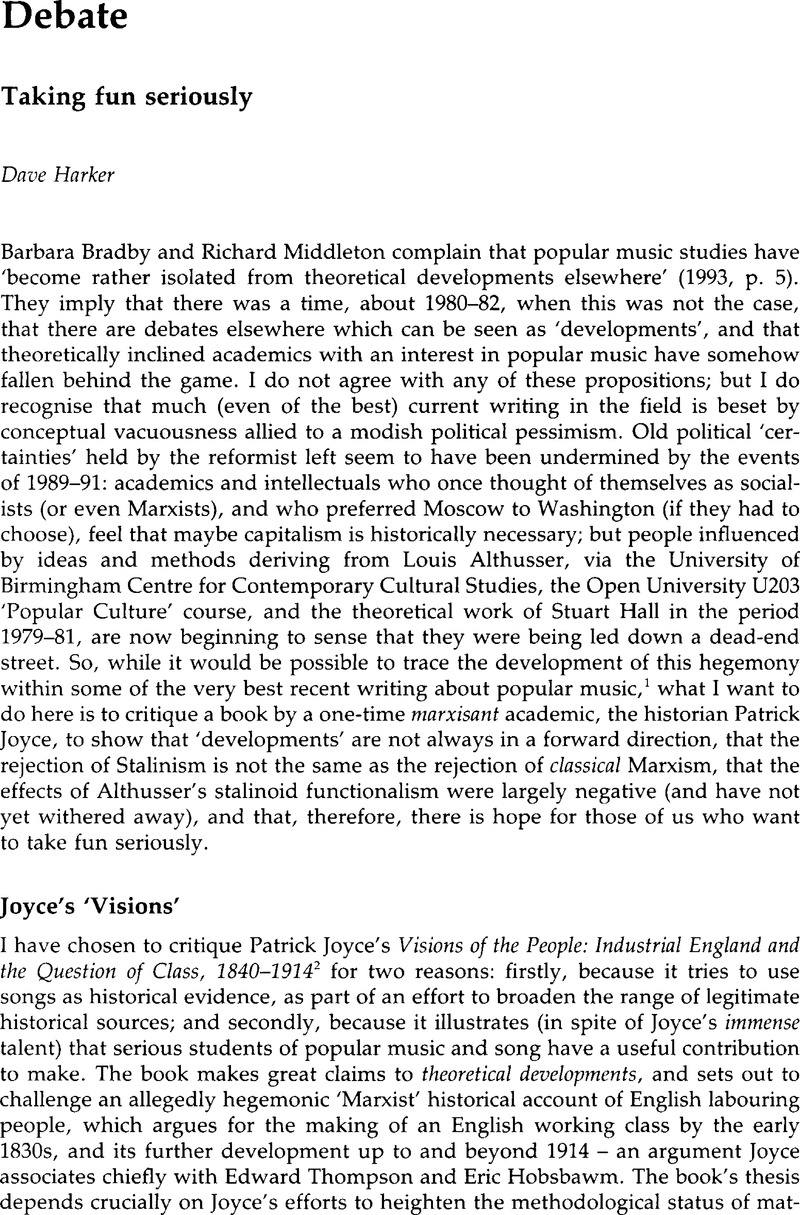Crossref Citations
This article has been cited by the following publications. This list is generated based on data provided by Crossref.
Harker, Dave
1997.
The wonderful world of IFPI: music industry rhetoric, the critics and the classical marxist critique.
Popular Music,
Vol. 16,
Issue. 1,
p.
45.
Woods, Robert H.
1999.
Predicting is difficult, especially about the future: human resources in the new millennium.
International Journal of Hospitality Management,
Vol. 18,
Issue. 4,
p.
443.
Duffett, Mark
2000.
Transcending audience generalizations: Consumerism reconsidered in the case of Elvis Presley fans.
Popular Music and Society,
Vol. 24,
Issue. 2,
p.
75.
Sincoff, Michael Z.
and
Owen, Crystal L.
2004.
Content Guidelines for an Undergraduate Human Resources Curriculum: Recommendations From Human Resources Professionals.
Journal of Education for Business,
Vol. 80,
Issue. 2,
p.
80.



